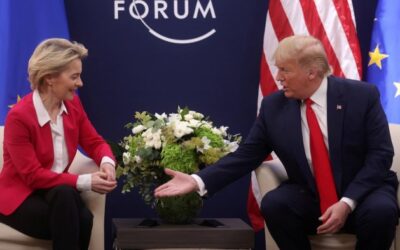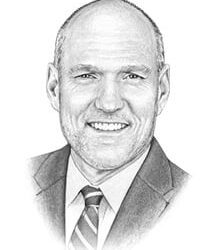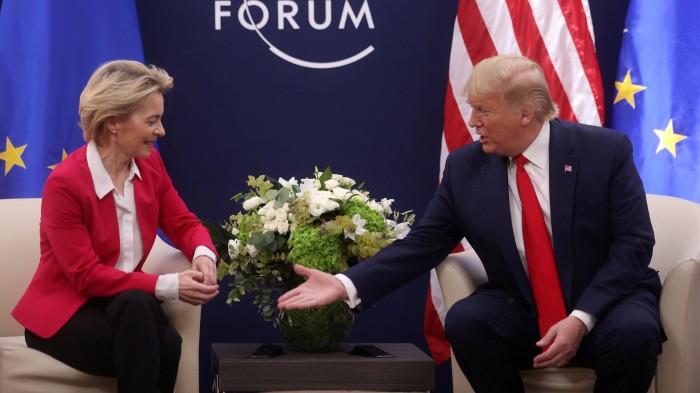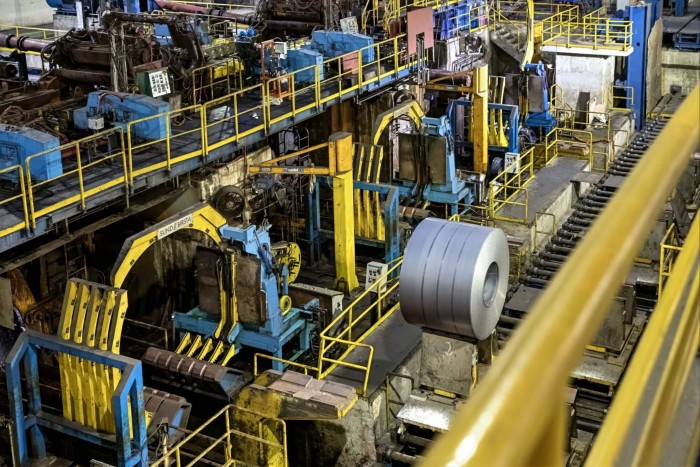Lagarde discussed leaving ECB early to head WEF, Schwab says
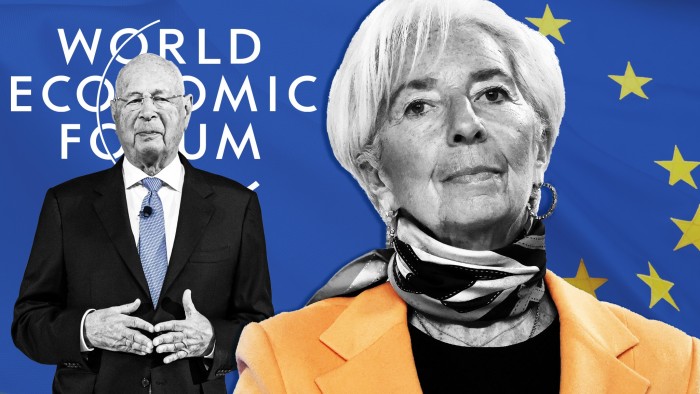
Unlock the Editor’s Digest for free
Roula Khalaf, Editor of the FT, selects her favourite stories in this weekly newsletter.
Christine Lagarde has discussed cutting short her term as European Central Bank president to become chair of the World Economic Forum, according to WEF founder Klaus Schwab.
Schwab, who left the WEF last month in the wake of misconduct allegations he denies, said that practical arrangements — such as an apartment in Switzerland — had been made for Lagarde to take over the organisation before her tenure at the ECB ends in 2027.
Any move by Lagarde to accelerate her departure from the ECB could trigger a succession race for the EU’s top monetary authority.
Schwab told the Financial Times that Lagarde had been at the centre of a plan both had discussed for “several years” for her to replace him as head of the WEF, the body behind the annual meetings of the business and political elite at the Swiss ski resort of Davos.
The latest conversation was in early April, when Schwab visited Lagarde in Frankfurt “to discuss with her the leadership transition [at WEF] with myself remaining chair until she was ready to take over, at the latest, early 2027”, he said in an interview.
Lagarde, who has been on the WEF board of trustees since 2008, has a non-renewable eight-year term at the ECB which runs until the end of October 2027.
Two people familiar with the matter referred to a mutual understanding about the timeline between both sides, which would have required Lagarde to leave at least 10 months before her term ends.
One of them said she had agreed to take on the role on the proviso she could first bring inflation in line with the ECB’s medium-term 2 per cent target. But they added that Lagarde also expressed some reservations about her ability to leave the ECB early at various points during the conversations about her future.
An ECB spokesperson said: “President Lagarde has always been fully committed to deliver on her mission and is determined to complete her term.” The spokesperson declined to comment further.
The WEF said it was “not in any position to comment on possible confidential discussions that may have taken place between our former chairman and Madame Lagarde”.
The 69-year-old former IMF managing director and French finance minister would be the second ECB president after Wim Duisenberg to leave the Frankfurt-based institution early.
The ECB presidency, one of the highest-profile financial jobs in Europe, has historically been subject to high-stakes political bargaining between individual member states.
Schwab told the FT that an apartment in the WEF-owned Villa Mundi overlooking Lake Geneva had already been reserved for Lagarde, to give her “somewhere to work as she took on more responsibilities and needed to be here”.
Responding to claims by a whistleblower that his family had made private use of parts of the Villa Mundi complex, he added that the apartment was not for him but Lagarde.
The WEF described his comments on the apartment as “new information to us”, adding that Villa Mundi was “now being used by our staff and constituents”.
Several people familiar with the WEF succession cautioned that no formal agreement between the Geneva-based institution and Lagarde had yet been struck.
But two people with knowledge of discussions said the conversations between Lagarde and the forum about a leadership role had continued since Schwab’s departure.
The 87-year-old said in early April he intended to step down as chair of the board of WEF trustees in January 2027. But he was forced out by the WEF board only weeks later, after the anonymous whistleblower made a series of allegations including that he and his family received inappropriate financial benefits from the organisation.
Schwab had been cleared of other misconduct allegations just weeks before the new complaint landed and has also rejected the latest allegations.
The WEF founder told the FT that he was concerned that the long-planned handover to Lagarde might be jeopardised, because of his own early departure last month and potential damage to the institution’s reputation.
“My fear is that if this continues and hangs over the organisation without a solution, Christine Lagarde will not take up the position as chair,” he said. “I don’t want to lose her. I want to make sure what has been built here . . . is not destroyed.”
The WEF, which has appointed former Nestlé chief Peter Brabeck-Letmathe as an interim chair, countered that it “continues to operate from a position of strength”, adding that it had record participation in recent events.
Davos has become a set-piece event for chief executives and heads of government and a money-making machine, with SFr440mn in revenue in 2024.
Lagarde could expect a doubling of her annual salary, which last year stood at €466,000, compared with about SFr1mn that Schwab made.
Since taking office at the ECB in 2019, she has steered the central bank through Covid-19 and a once-in-a-generation surge in inflation that followed pandemic lockdowns and Russia’s full-scale invasion of Ukraine.
Price rises have since come back under control, with Eurozone inflation remaining at 2.2 per cent last month and ECB staff predicting it will return to target next year.
